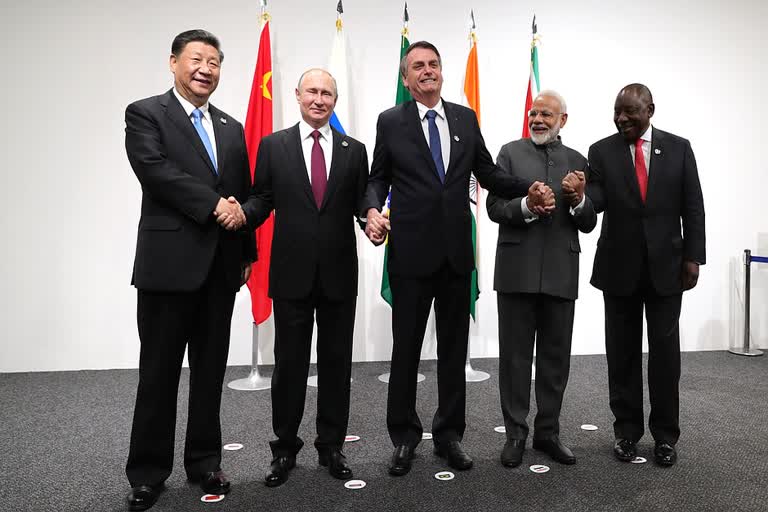Hyderabad: The eleventh annual BRICS summit, held in Brasilia, the capital city of Brazil discussed strategies to counter-terrorism besides strengthening of cooperation in trade and finance.
The BRICS association, which emerged 10 years ago with the aim of establishing a world with equal opportunities; rightly identified the roadblocks in the path towards progress. BRICS is the acronym for an association of five major countries: Brazil, Russia, India, China and South Africa.
The International Monetary Fund (IMF) warned that the trade war resulting from US-China imposed tariffs could cut the global gross domestic product by 0.5 per cent, which is more than South Africa’s annual economic output.
The BRICS leaders discussed the greater impacts of terrorism on the world economy. In Narendra Modi’s words, the world economy had lost crores of dollars and 2.25 lakh people worldwide had lost their lives due to a rise in terrorism.
The country heads of BRICS, who met in New York 7 weeks ago, decided to implement strategies to counter-terrorism. Consequently, they reaffirmed support for countering terrorism in all forms including the prohibition of chemical weapons.
A year and half ago, USA, UK, France and Germany have agreed to prosecute Pakistan for its non-compliance in anti-money laundering and terrorism funding. Only when China, which comes to Pakistan’s rescue by creating operational difficulties cooperates, the counter-terrorism strategies would not work.
Read more:Stake sale in BPCL, SCI, Concor to strengthen firms, bring in fresh investments: FICCI
The extent of cooperation, coordination and amicableness among BRICS nations in the past 10 years is questionable. Modi revealed in his plenary speech that the percentage of trade among BRICS nations accounts only for 15 per cent of the world market. BRICS nations, which constitute 23 per cent of world GDP and 42 per cent of the world population must realize the importance of mutual cooperation.
In the past, there were estimates that BRICS nations would lead the world economy alongside the USA, Japan by challenging UK, France and Germany.
The BRICS association is continually passing resolutions about bringing about reforms in fuel and food safety and international organizations would be successful in implementation if they unite and fight.
The Prime Minister of China, Xi Jinping, who stated that BRICS, Shanghai Cooperation Organization and Eurasian Economic Union together could establish a multipolar world. Prime Minister Modi invited member nations to benefit from the endless opportunities and ease of doing trade in India.
India and Brazil stood last in the International Competitiveness Index. Reforms in the basic infrastructure provision, electricity supply and supply chain will attract investments.
BRIC, which was originally Brazil, Russia, India and China before the induction of South Africa focused on improvising the global economic situation and reforming financial institutions.
Though 10 years have gone by, the results are pessimistic. That is the reason why the current Brasilia summit’s is focused on reforms in United Nations Organization, World Trade Organization and International Monetary Fund.
India’s stance on bringing about systemic changes in UNO is being made clear on a world stage. The BRICS summit seconded this opinion and demanded similar policy changes in WTO and IMF.
It is China whose stance differs in a group and as an individual nation that is unpalatable to India. Though the rest of the veto nations are favouring India’s permanent membership, China has been long opposing it. Unless China changes its stance, the BRICS demands cannot be fulfilled.
The Charter of the United Nations states that the permanent member nations must consent to any changes in the security council. In other words, the main obstacle to BRICS demands is one of its member nations. The five nations which joined hands despite geographical and ideological differences must resolve their internal conflicts in order to become an influential force.




